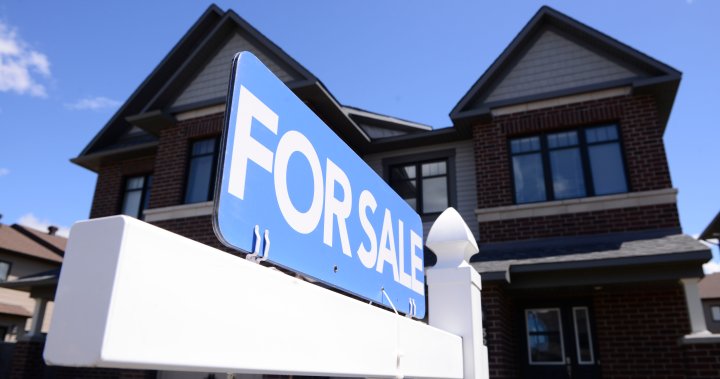Canada’s housing market is “starting to turn a corner,” the country’s national real estate association says.
According to the latest data from the Canadian Real Estate Association (CREA) released Wednesday, the housing market has seen an uptick in activity despite interest rates being at a 22-year high.
“The market has been showing some early signs of life over the last couple of months, probably no surprise given how much pent-up demand is out there,” Larry Cerqua, CREA chair, said in a news release.
“There’s a consensus that the market will probably look quite a bit different this year compared to 2022 and 2023.”
CREA’s data showed home sales activity rose 3.7 per cent between December 2023 and January 2024, building on the 7.9 per cent month-over-month increase recorded the month prior.
The association said sales activity is back on par with 2023’s stronger months, recorded over the spring and summer. However, it begins 2024 roughly nine per cent below the 10-year average.
National gains in sales were once again led by the Greater Toronto Area, along with Hamilton-Burlington, Montreal, Greater Vancouver and the Fraser Valley, Calgary and most markets in Ontario’s Greater Golden Horseshoe and cottage country.
“The actual (not seasonally adjusted) number of transactions came in 22 per cent above January 2023, the largest year-over-year gain since May 2021,” CREA said.
“That said, with current activity still running at below-average levels, the double-digit gain was more reflective of the base effect from the comparison to January 2023, which was the worst start to almost any year in the past two decades.”
The number of newly listed homes edged up 1.5 per cent on a month-over-month basis in January, although it remains close to the lowest level since last June.
The activity spike comes as the Bank of Canada’s key lending rate sits at five per cent, unchanged since July after an aggressive hiking cycle.
The central bank hiked rates in a bid to cool inflation, which came in at 3.4 per cent in December. Bank of Canada governor Tiff Macklem has said the central bank is aiming to get inflation down to two per cent.
Get the latest Money 123 news.
Sent to your email, every week.
Macklem stressed to parliamentarians on the House finance committee on Feb. 1 that the Bank of Canada’s benchmark interest rate has little impact on housing affordability.
He said one of the biggest sources of inflationary pressure right now is in the shelter component of the consumer price index, which factors in the rising costs of rents and mortgages amid higher interest rates.
Macklem noted that annual inflation would instead be running around 2.4 per cent if shelter prices were stripped out.
Several realtors told Reuters last week that pent-up demand, a chronic shortage of homes, a spike in rents and hopes of an interest rate cut may fuel a rally in the sector. Ottawa has introduced a slew of measures to boost housing supply, including reviving a wartime housing program that offers pre-approved designs to developers.
Many economists are predicting that interest rate cuts will begin in April or June, but the central bank has not yet indicated if and when cuts to interest rates are coming.
Regardless, some buyers are already coming out of hibernation.
John Pasalis of Realosophy Realty told Reuters a three-bedroom townhouse his company listed for $828,000 last month in Newmarket, Ont., received 40 offers and sold for $1.06 million.
“All of these multiple offers … are working now because demand is a lot higher than in the fall,” Pasalis said.
Mike Moffatt, founding director of the Place Centre, a think tank focused on sustainable housing, said demand “is going to absolutely explode when rates come down and first-time homebuyers can start qualifying for mortgages again.”
CREA said Wednesday that the Aggregate Composite MLS Home Price Index fell by 1.2 per cent on a month-over-month basis in January. This represented an acceleration from the 1.1 per cent decline recorded in December.
Price declines have been predominantly in Ontario, particularly the Greater Golden Horseshoe and to a lesser extent British Columbia.
Elsewhere in Canada prices are mostly holding firm or in some cases — like in Alberta and Newfoundland and Labrador — continuing to climb.
The actual, not seasonally adjusted, national average home price was $659,395 in January 2024, up 7.6 per cent from January 2023.
“Sales are up, market conditions have tightened quite a bit, and there has been anecdotal evidence of renewed competition among buyers; however, in areas where sales have shot up most over the last two months, prices are still trending lower,” said Shaun Cathcart, CREA’s senior economist.
“Taken together, these trends suggest a market that is starting to turn a corner but is still working through the weakness of the last two years.”
© 2024 Global News, a division of Corus Entertainment Inc.




